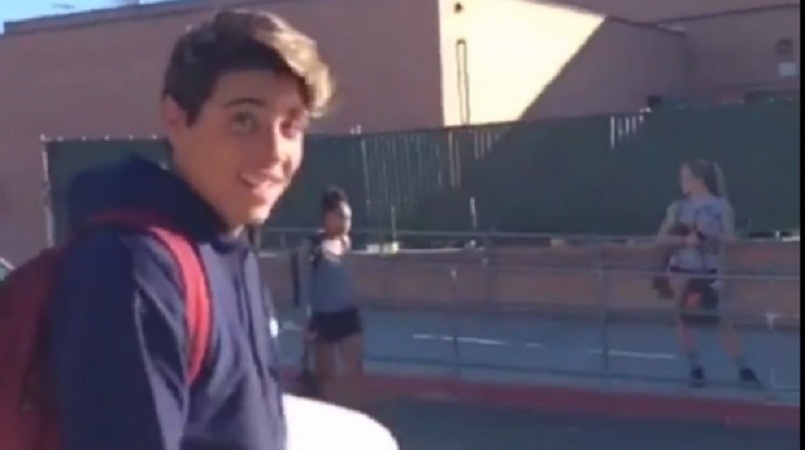
Less than two weeks after posting the video that would make him famous, and less than one week after appearing on The Ellen DeGeneres Show, Josh Holz experienced the latest milestone in the viral-fame cycle: The 15-year-old was hacked on Twitter.
His account, @joshholzz - the original site of the "Damn Daniel" meme - began tweeting out racist memes on February 27.
At some point after that, screenshots show, someone changed the account's header to read "Meme Team" and the listed name to "XTM".
At some point, the hackers also deleted the original "Damn Daniel" video, a sin about which they apparently feel no regret.
"The 'Damn Daniel' thing was utterly stupid," one of the self-proclaimed hackers said. "It was only a kid saying two words again and again."
This is the current cost of internet fame, a capricious beast that gifts both surfboards and suffering to its (intermittently) willing subjects.
In addition to the hacking, Holz was "swatted" last week, a prank in which a fake police tip gets a SWAT team sent to your house.
He and his 14-year-old meme-mate, Daniel Lara, have been the subjects of steady internet nastiness, from homophobic Twitter jokes to mild threats.
Alex from Target or Keyboard Cat or the "prancercise lady" could have warned them: Sometimes being one of the internet's most beloved people is almost as bad as ranking among its most hated.
"If you're going to be out there, part of the deal is that you're going to get a lot of hate," said Ben Lashes, the business manager of memetic phenoms from Scumbag Steve to Grumpy Cat.
"If you're in the entertainment business, you sign up for it. But if you put something up on YouTube and it explodes overnight, often you don't realise there will be a backlash."
You may also not realise that, over time, the blowback has got worse.
When Lashes began representing online celebrities in 2011, the worst you might expect was schoolyard-level bullying: name-calling, nasty emails, weird conversations with strangers at bars - generally, Lashes says, the online equivalent of "throwing eggs at the popular kid's house".
But in the past few years, as online celebrities have become more visible, the harassment has upped its pitch, as well.
Joanna Rohrback, the woman behind Prancercise, had her email hacked.
Then-16-year-old Alex Lee, better known as "Alex from Target", received dozens of death threats after his photo went viral on Twitter.
Later, detractors would publish his family's personal information, including bank account numbers.
By far the most dramatic backlashes, however, are those that played out on Twitch, the live-streaming site where some gamers have accrued audiences in the tens of thousands.
Beginning in late 2013, young trolls and pranksters began calling in fake police tips on popular streamers, hoping to catch the action live when SWAT teams showed up at the player's house.
Unfortunately, those sorts of admonishments don't really register among the community of people who prank, troll and otherwise harass online celebrities.
Anecdotally, at least, they appear to be quite young: Most of the people arrested for swatting have been teens.
And in their minds, they're playing the same game as the celebs themselves: doing very public and occasionally stupid things in the pursuit of greater internet notoriety.
